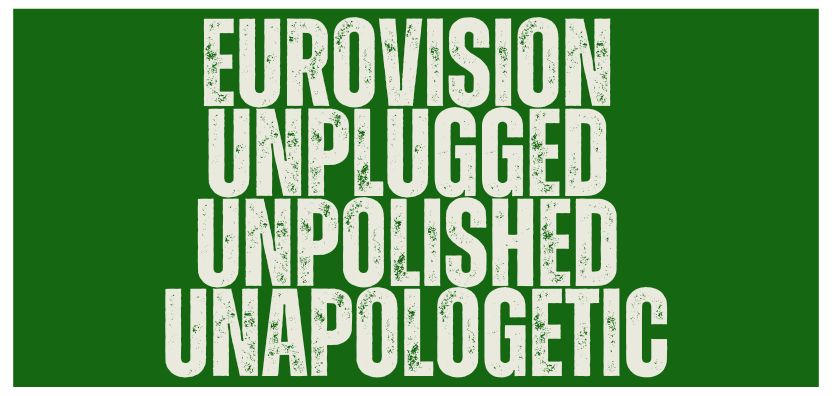
We are now halfway through the group stages and we already know eight of the sixteen participants in the knockout stages. We now move on to Group E, a geopolitically complex affair given the historical relationships between the competing nations. The Netherlands are the top seeds having won the contest five times, a record that will make neighbours Germany extremely jealous given both nations’ size and European stature. Yugoslavia might similarly feel that they didn’t make the most of their pooled Balkan resources, achieving only one victory in 1989. Then there’s Slovenia who few people expected to emerge from qualifying and who are the only competing nation at the tournament to have never placed in the top 2. Nevertheless, they are proud to be here and having already caused an upset in qualifying, they will be looking forward to proving themselves against some veritable European giants.
The Netherlands (1975 & 2014)
https://www.youtube.com/watch?v=sI78Bqp6z6g
The Netherlands have Eurovision in their blood. It’s not entirely clear how and why the contest has ended up meaning so much to them but ever since their participation at the first ever Eurovision Song Contest in 1956, they have consistently put in maximum effort and lifted Dutch (not exactly the prettiest language in Europe) to Eurovision victory on three occasions. Then the native language rule was temporarily dropped in 1973 and the Netherlands begun to produce high quality songs in English. This eventually brought about the Netherlands sending Teach-In to Stockholm in 1975 and the song ‘Ding-a-Ding’, an entry that has gone on to become a Eurovision classic. Speaking of Dutch songs that went down in Eurovision folklore, The Common Linnets didn’t win the 2014 contest in Copenhagen with their song ‘Calm After the Storm’ but its journey at the contest from not being rated to qualify to surprise runners up. The Netherlands have continued to surprise us at Eurovision but what is always expected from a Dutch entry is a deep sense of care for the export of their music culture to the rest of the continent and there are enough success stories out there to warrant passing them a vote or two.
Germany (1982 & 2010)
By contrast, the Germans have frequently under-performed at the contest. This is mainly owing to their inability to take full advantage of golden periods during the early 1970s and the early-mid 1980s. They did manage to pick up one victory during this period when a 17-year old Nicole came to Harrogate in 1982 and sung her song urging the world for ‘Ein bißchen Frieden’ (‘A Little Peace’). The next decades saw sporadic results but the opening up of the contest to eastern European nations was not generally kind to Germany. Their results suffered through the introduction of the Semi-Finals despite their automatic presence in the final. That was until 2010 when a 19-year old Lena stormed to victory at the contest in Oslo with her simple and sweet ‘Satellite’. So, is the record of one of the main European nations at the contest disappointing? Probably. Is it strange that their two victories were both by solo teenage girls? Definitely. Do they need to send more entries in German? The vast majorities of their entries to place in the top 10 were sung in German. Does their brand of pop music always bring something special to the contest? Most certainly. Is it enough to earn your vote?
Yugoslavia (1983 & 1989)
https://youtu.be/ANOUpAy90K8
At Eurovision, we make a massive deal about the Balkan ballad and its cultural significance to Europe and the contest. Despite this, Yugoslavia had their best success at the contest when they went upbeat and put forward entries that were bright, energetic and fun. This is very apparent in their 1983 entry when Danijel went to Munich and came 4th singing ‘Džuli’. It is most representative and celebrated however in their 1989 entry as Riva brought their A-game in Lausanne with their song ‘Rock Me’. Given that Yugoslavia had the resources of several current competing Eurovision nations available, it’s a wonder that they didn’t manage more than one victory at the contest. Their contribution to Eurovision however cannot be understated and it set the tone for several former Yugoslav nations to enjoy great results at the contest in years to come. If only for their representations of Balkan culture at Eurovision for so many years, Yugoslavia deserve some votes from you.
Slovenia (1995 & 2001)
Speaking of former Yugoslav nations enjoying great results in the years since their independence, Slovenia have already fought hard to get to this point in the tournament having beaten off Bosnia & Herzegovina and the Czech Republic on a tie-break finish whilst eliminating North Macedonia & Montenegro in qualifying. ‘Prisluhni mi’ represents this grit and determination as a powerful ballad performed in 1995 in Dublin and Daria Švajger’s 7th placed result has never been bettered. It was equalled however in 2001 in Copenhagen when Nuša Derenda brought ‘Energy’ (literally) to the contest and came 7th with her drum machine banger that is both dated and fun. Though they are admittedly rank outsiders in this fiercely contested group, listeners will most certainly all have at least one Slovene Eurovision entry that they love dearly and maybe that will earn them enough votes to sneak into the last 16!
Please vote no later than 23.59 BST July 19th and we shall release the vote for Group F, the most geographically diverse group in the tournament as Ireland, Austria, Turkey & Australia battle for qualification.
This article was written by Fin Ross Russell (Internationalist Eurovision Blog)


